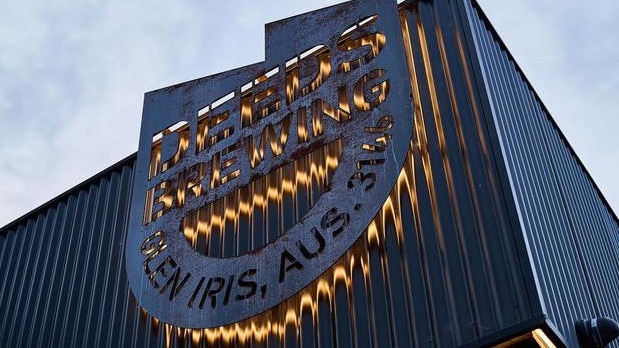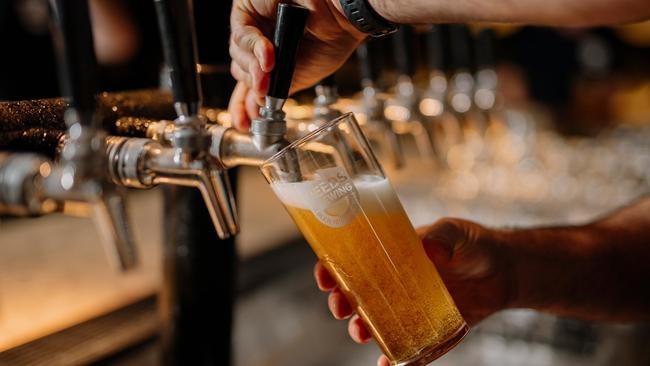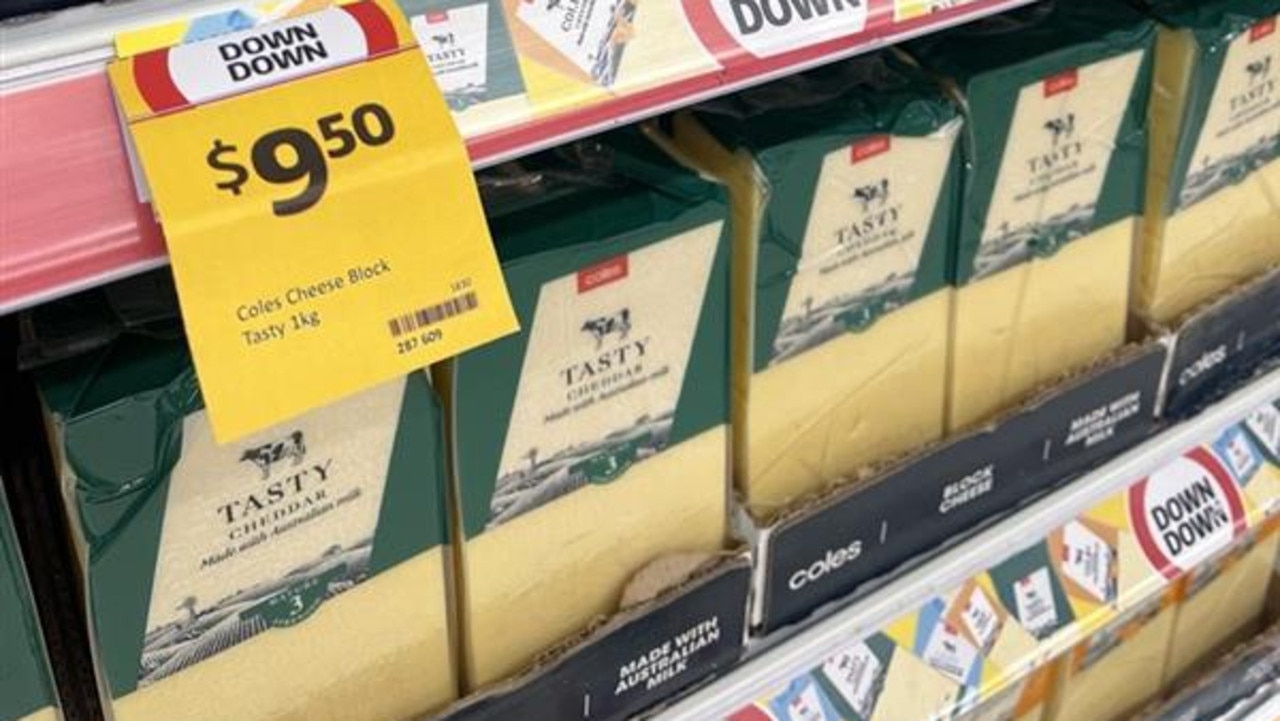Multiple breweries collapse as alcohol industry brought to its knees
An industry insider is sounding the alarm as mass casualties hit one Aussie sector that used to be thriving, but no longer.

Retail
Don't miss out on the headlines from Retail. Followed categories will be added to My News.
An industry insider is sounding the alarm on the alcohol sector as onerous taxes and a massive drop in demand drives breweries to their knees across the country.
Nick Boots, an industry consultant from The Business of Beer Consulting and Advisory and previously the general manager of popular Byron Bay brewery Stone & Wood, has warned that the recent collapse of Melbourne-based Deeds Brewery won’t be the last to rock the sector.
Earlier this month, the “proudly independent” and award-winning Deeds Brewing announced it was going into liquidation and shutting down forever, after previously going into administration and trying to trade its way out of disaster.
Its collapse will leave 50 staff members without jobs.
Mr Boots told news.com.au that Deeds was paying “huge rent that was unsustainable”, coming in at more than $700,000.
On top of that, Mr Boots said they “specialised in ‘limited release’ beers that were very inefficient to produce”.
“Excise tax and overhead costs like electricity and malt have increased more than 20 per cent in the last two years,” he added. “Brewers like Deeds struggled to pass on these increased costs to drinkers.”
A number of other independent breweries have gone into administration in the past year including Brisbane-based Ballistic Beer Company, Adelaide business Big Shed Brewing, Melbourne-based Hawkers Brewery and the Wayward brand and Akasha Brewery, both from Sydney.
Deeds Brewery is the first to be unable to negotiate a deed of company arrangement, or a DOCA, with its creditors, forcing it to go into liquidation.

It’s an issue many craft beer breweries are experiencing amid the economic downturn, according to Mr Boots.
“Craft beer was the hot thing” from 2005 until the post-Covid economic downturn, he said.
“So many new market entrants came into the industry with little experience and little capital funding,” he said.
“The market was growing at triple digits for many years. Now the music has stopped.
“Craft beer is here to stay but it is flat.”
The government-imposed tax excise is the largest cost for every brewer but during the Covid-19 pandemic, the Australian Tax Office (ATO) allowed these businesses to defer their payments.
“The concept was ‘we’ll help you preserve cash and then we’ll negotiate a repayment plan’,” Mr Boots explained.
“We’ve seen a number of breweries taking that cash saving and they’ve invested that in capital expenditure, new brewing equipment, opening up new venues.
“Now the ATO have said we want our money back.”
Brewers are also being hit with a double whammy because the excise tax rises twice a year in line with inflation, which is higher than it’s been in decades.
The tax charged on spirits and beer – known as the excise tax – varies depending on the alcohol content of each drink.
The most recent increase happened in February, where one litre of pure alcohol will now be subject to $101.85 cents of excise — up from $100.05 — a rise of 1.8 per cent.
Brewers Association of Australia chief executive John Preston previously told news.com.au that Australia has the third highest beer tax in the world, after only Norway and Finland.

It’s also getting harder and harder for breweries to make money and scrape themselves out of a financial black hole.
“We’re now seeing a bit of a shift back to more industrial mainstream beers,” Mr Boots said.
“I don't think it’s flavour driven or brand driven, it’s just price driven.”
There’s also been an uptick in supermarkets selling generic brands of beer.
“It looks like boutique craft beers but it’s actually mass produced,” he said.
“They’re able to price them significantly cheaper than the independent craft brewers can
Some independent brewers are charging as much as $17 for a pint of beer to claw back some profit.
“And that’s where consumers baulk,” Mr Boots said.
He added that: “I’m finding for some brewers, their taproom is the sole source of reasonable income and margin as consumers go out less.”
The two major players – Carlton & United Breweries (CUB), which makes VB and Carlton Draught among others, and Lion, which produces XXXX and Tooheys – command as much as 90 per cent of the beer market, posing another problem for small brewers.
“The big guys can brew beer for half the price of the small guys,” Mr Boots said.
“They have a tax advantage, they’ve got amazing efficiencies. They can produce beers more cheaply and sell it more cheaply.”
alex.turner-cohen@news.com.au
Originally published as Multiple breweries collapse as alcohol industry brought to its knees





